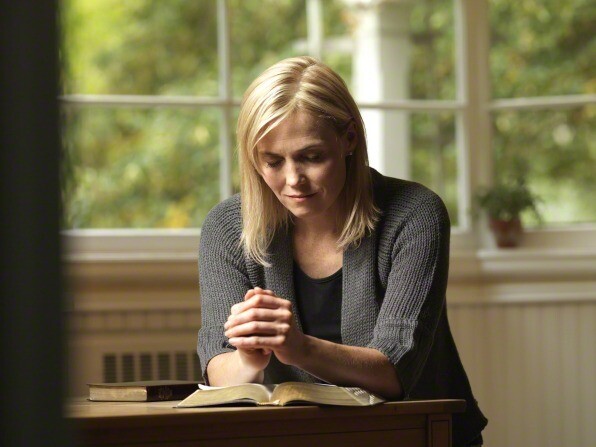On the day that I defended my doctoral dissertation, I went to the Mesa Arizona Temple to express gratitude for the divine help I had felt throughout my academic journey. I was also interested in mapping out what would be next for my life. I had accepted a position to teach at Brigham Young University and was anticipating a move to Utah. I felt like it was a new beginning. I sensed that my life had a clean slate of sorts. Further, I had the words of the previous general conference resonating in my mind and heart. In particular, the teachings of Elder Dallin H. Oaks were profoundly penetrating my heart:
“I close with a final example of desire that should be paramount for all men and women—those who are currently married and those who are single. All should desire and seriously work to secure a marriage for eternity. Those who already have a temple marriage should do all they can to preserve it. Those who are single should desire a temple marriage and exert priority efforts to obtain it.”5
Though in many ways the statement was painful, I knew that I must obey. At the age of forty, I felt that I had done all I could do in acting on my desire to be married. I was exhausted, a bit cynical, and my hope was limited. However, as I continued to consider Elder Oaks’s statement, I started to ask what it would mean for me to “exert priority efforts” to obtain a temple marriage. I wanted to obey and show the Lord that this desire was still very important to me regardless of the timing. As a result, much of my newfound spare time was spent pondering what felt to me like a specific, personal commandment.
Shortly after moving to Utah, I was studying the conference issue of the Ensign magazine. One particular morning, I felt a nudge to focus on the priesthood session talks, particularly President Thomas S. Monson’s talk to the brethren. As I read the following statement, an impression came forcefully to my heart and mind.
“There is a point at which it’s time to think seriously about marriage and to seek a companion with whom you want to spend eternity. If you choose wisely and if you are committed to the success of your marriage, there is nothing in this life which will bring you greater happiness.
“When you marry, brethren, you will wish to marry in the house of the Lord. For you who hold the priesthood, there should be no other option.”6
In that moment, I sensed that it was time for me to get married. Though I had felt that impression on numerous occasions, the timing felt precise. I wanted to be prepared and obedient. I started studying President Monson’s talk again, this time with the intent of discovering the kind of man the Lord would have me seek as a worthy companion. I knew that the prophet would lead me to discern correctly. The following is a list of principles I identified while studying President Monson’s talk. Though President Monson was speaking to the priesthood brethren, it felt like personal prophetic counsel regarding my future companion.
• He will have a strong testimony of Christ.
• He will reject false concepts and false teachings.
• He will exercise faith and be quick to observe.
• He will be committed to making our marriage work.
• He will be fiercely loyal to me.
• He will be a true equal both in mind and heart.
• He will show me respect, courtesy, and honor.
• He will be a covenant maker and keeper.
• He will be a hard worker.
• He will be disciplined.
Though much of the language of these ten principles comes directly from President Monson’s talk, I sensed specific characteristics and virtues being outlined by the prophet regarding my future companion and his potential. I also felt that it was important for me to become equal to each of these principles. This was different from the lists I had devised as a young woman that included physical characteristics and professions. Though this was not the first time I had thought about the kind of man I hoped to marry, it was the first time in a long time that I felt hope. It seemed as though the prophet was outlining specific attributes for me. I trusted that President Monson was promising me an equal companion. In fact, he said, “If you choose wisely and if you are committed to the success of your marriage, there is nothing in this life which will bring you greater happiness.”7 And I knew that I would one day claim these blessings.
For the first time in a long time, I was filled with hope and desire. These ten principles became important goals for me to strive to become and develop in my own life. I changed the way I approached my study of the teachings of the prophets, looking for ways to develop into the kind of woman I wanted to be. And nearly a year to the date of the delivery of this talk by President Thomas S. Monson, I was engaged to the man of my dreams.
Let me be very clear: I am not outlining a formula for how to meet and marry the spouse of your dreams. This specific example demonstrates the way the Spirit will teach us what we need to learn in appropriate times and when we are prepared for promised blessings. I believe in the Lord’s timing. I also believe in being available to the Lord so He can lead us to where He needs us to be at specific times and in specific seasons. But how can that happen if we have not placed His words and teachings as our first priority? We must make the study and daily application of the teachings of living prophets a chief goal. And we can trust that He will bless us with peace as we do.
Lead image from lds.org.
The little things we do on a daily basis don’t just matter—they can make all the difference. Intentional daily acts focused on covenant-keeping will bind us to the Savior as we are deliberate and determined to follow Him in small and simple ways.
Drawing upon the teachings and lives of ancient and modern prophets, authorJennifer Brinkerhoff Platt identifies patterns of truth that encourage increased commitment to covenant relationships while diminishing the binding grip of the adversary. Included are chapters on the need to be consistent in covenant- keeping, on recognizing Satan’s tactics and lies, on undoing self-destructive routines, on the role of the Spirit to help us both feel and follow promptings, and on the power of daily scripture study and prayer in establishing habits that reinforce and support our commitment to the Savior.
^5. Dallin H. Oaks, “Desire,” Ensign, May 2011, 45.
^6. Thomas S. Monson, “Priesthood Power,” Ensign, May 2011, 67–68.
^7. Ibid., 67; emphasis added.




